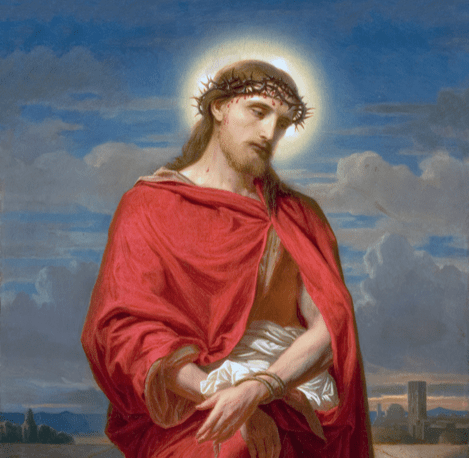Our first two readings describe in poetic terms what Christ’s kingdom is like: a priestly kingdom of glory and power that will never end. Pilate wanted to know if Jesus claimed to be a king, or if the Jews who wanted Jesus destroyed were behind the rumors of kingship. Jesus does not deny his kingship; after all, he says his purpose in life is the Truth. If you were reading this in the Bible, you would see Pilate’s response, “What is truth?”
For Jesus (and for us) truth is that God is the source of the universe, the source of all life. Jesus came to show us the truth of God’s love for all people. The divine kingdom is simply the way that we relate to God and each other. We join that kingdom, not by signing a membership list, but by living a life of love: Love for God and for each other.
So why doesn’t Jesus use all that power and glory to make everyone follow him? God asks us to be humble like Jesus. God doesn’t force people to believe. That is another side of Truth: who God is and who we are. If you believe in God, you begin to see God in people who you love, people who need our help. We even see God in the beauty and majesty of creation.
Today Jesus invites us to accept the truth and become members of his kingdom. The tax is what we freely choose to give; the army are those who freely give themselves in service to the poor, the sick, and those who are seeking God. And the laws of this Kingdom are simple—Love God with all your being and love your neighbor as yourself. And that’s the Truth.
Tom Schmidt, Diocesan Publications
The Solemnity of Our Lord Jesus Christ, King of the Universe | USCCB


